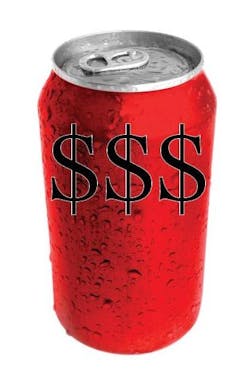NY Times Editorial: U.S. Should Consider Following Mexico’s Beverage Tax
The New York Times editorial board recently published a column that discusses the impact of a tax on soft drinks and what it has done for Mexico, which implemented the tax in 2013.
The soda tax that the Mexican government imposed on sugar-sweetened drinks amounted to a 10 percent increase in the price of beverages, which has driven down consumption, the source reports. In fact, researchers at the University of North Carolina and Mexican public health authorities have been studying the effect of the Mexican soft drink tax and have found that in 2014 there was an average 6 percent decrease in soda sales in the country.
The editorial goes on to say that soda taxes could also be a health tool for states with high levels of obesity. "The Mexican example should help persuade lawmakers in the United States to consider comparably stiff taxes," the source wrote.
Editor’s Note: The Mexican soda tax has now been in effect for two years, and research will continue to emerge surrounding the consumption of soda in the country. In the coming years, we may see more rallying around a sugar-sweetened beverage tax in the U.S., especially as jurisdictions begin taking the issue into their own hands (Berkeley, CA, is one example). The results of studies from the Berkeley soda tax could influence other areas to implement a tax, however as the article notes, it’s too soon to see the effects of that tax.
